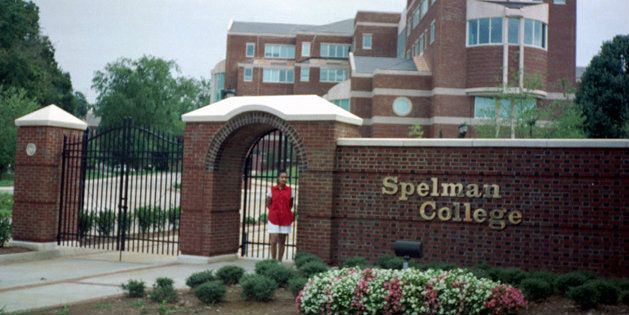A Reminder of Our Reality: Rape Allegations Made Against Morehouse College Students

by Evan Seymour
Saturday mornings are for sipping coffee and scouring my favorite websites. Randomly, I decided to Google the name of my alma mater, Spelman College. I was saddened as I read what popped up on the screen – three Morehouse basketball players and a fourth Morehouse student have been arrested and charged with the rape of an 18 year-old attendee of Spelman.
The unidentified 18-year-old went to police after she claims the four men assaulted her on the first day of the schools’ shared spring break. She told police that while she was unwittingly under the influence of an unknown substance – possibly the popular street drug Molly – the four men raped her in one of the dormitories on Morehouse’s campus.
I shook my head as I stared at the headline, disgusted and dismayed, but less surprised than one might expect. According to the National Institute of Justice and the Bureau of Justice Statistics, every two and a half minutes, a woman is sexually assaulted in the United States. If the allegations of the young lady are true, she is now part of the estimated one in six American women who is the victim of sexual assault at some point during her lifetime.
The incident reminded me of my time in the Atlanta University Center as an English major at Spelman. In September of my senior year, tensions between the two schools were high, to say the least, when a group of around 150 Spelman women marched onto the all-male campus to protest the alleged rape of one of our sisters by a man of Morehouse.
The decision to march on Morehouse was made by the leaders of a campus feminist organization known as FMLA (Feminist Majority Leadership Alliance). This was the second allegation of rape in just two weeks that Spelman’s Women’s Center had been made aware of, and the FMLA decided it was time to shine some light on the issue. Dressed in handmade t-shirts adorned with slogans like “No Means No”, and “I Am My Sister”, the group marched past campus security and descended on the campus. The Spelmanites determined to speak their peace and demanded the issue of assault be addressed by Morehouse’s administration.
There were definitely questions surrounding the 2006 allegations. In the case which sparked the demonstration, the Spelman student reported to police that she went back to the alleged perpetrator’s room voluntarily. She told police she at one point told the young man, “I am not doing this,” but she never actually said the word, ”no”. This caused some to question if she actually had been raped or not. Details about the other allegation of rape were never made public.
While a handful of young men did join the protest, the majority were furious. Many Morehouse students felt the protest had been disruptive, and premature, but the FMLA and their supporters argued that there was truth to the claims, and that the issue of sexual abuse had been a long-neglected one in the Atlanta University Center. Eventually, students on both sides decided to host a series of town-hall style forums to discourse around sexual assault. The conversation was a much-needed step in the healing process of our community.
This is another moment where healing is needed. Hopefully, the current students at Spelman and Morehouse use this as an opportunity to dialogue about the prevalence of abuse, prevention of abuse, and the need for mutual respect between black men and women. Conversations around gender relations need to be a more regular part of our dialogue in society, and the black community is no exception to this. The oppression of women is multi-faceted, and it is as important an issue in our world now as it ever has been. This is not a women’s issue, but a rights issue, and hopefully the students of both schools can come together to serve as an example of healthy, productive, and overdue conversation about gender relations.

No comments: